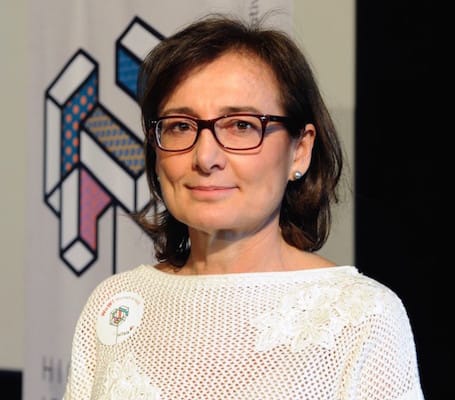Sustainability at JCU: The Triggering Change Competition
The concept of Sustainability first appeared in the Brutland report, a document published in 1987 to warn the United Nations about the negative environmental consequences of economic development and globalization. Today sustainability is about ensuring that economic growth happens compatibly with environmental protection and social justice.
We sat down with Professor Michèle Favorite to discuss sustainability at JCU and the Triggering Change Competition, which aims to develop creative processes that inspire action on environmental sustainability.

Professor Michèle Favorite
In Spring 2022 you launched the Triggering Change Competition. Tell us about it.
In Spring 2022, Professor Silvia Pulino and I decided it was time to bring sustainability to the fore at JCU’s School of Business and throughout the University, and that a pitch that sparked students to take action through creativity would be a great way to do this. We were very lucky to be able to enlist the priceless help of our alumnus Giacomo Di Capua and the continued support of the Frank J. Guarini School of Business in this endeavor.
How has the competition evolved since it was first launched?
The pitch has evolved quite a lot since the first edition! At first, we had a handful of classes, mostly from the Business Administration Department, along with some students who participated independently. Outside experts from The Liminal Space creative agency in London gave a workshop that helped us understand how crucial creativity is when addressing challenging topics like the environment.
Since then, the number of students has more than tripled, the classes participating are from different departments, and we have a range of outstanding outside experts who give talks that prepare the students on the specific topics we are addressing and explain what they are doing to help solve these challenges. (For Spring 2023, we’re tackling two U.N. Sustainable Development Goals: Clean Water/Sanitation and Partnerships for Sustainability),
The first of these prep sessions was held on March 15, by Dr. Joseph Mooney, a postdoc researcher at MIT and the University of Limerick and a recipient of the prestigious Marie Skłodowska-Curie fellowship (he was ranked second globally in his field for this fellowship). His work specializes in developing novel materials and devices that generate fresh drinking water from dirty water or seawater through photothermal steam generation.
He spoke about the “Water for All” Challenge and dived into the power of entrepreneurial ideas in helping to increase access to clean water and sanitation. He shared his experience, which merges academic research and an entrepreneurial mindset, and provided insights into how we can improve the quality of life of millions of people.
What makes a winning pitch?
A winning pitch focuses on a very specific challenge, identifies a specific audience, and weaves together great research and a creative solution that helps the audience understand what it can do to help solve the challenge.
What made you decide to include two JCU alumni in the Triggering Change Competition selection committee?
Our two alumni, Giacomo Di Capua and Asia Guerreschi, are two superstars when it comes to environmental sustainability. They are both doing impressive postgraduate work and have established organizations that work on sustainability. We are lucky to have them.
What tips and/or advice would you give to students who are trying to be mindful about environmental sustainability?
Become literate, understand the issues, and start taking small steps. A lot of small steps make big changes happen. Also, students have to appreciate the enormous power they can exercise through the products and services they choose to buy, the politicians they elect, and the companies they work for. Students are the leaders of tomorrow. That’s what we are trying to do at JCU: create the responsible leaders of tomorrow.





